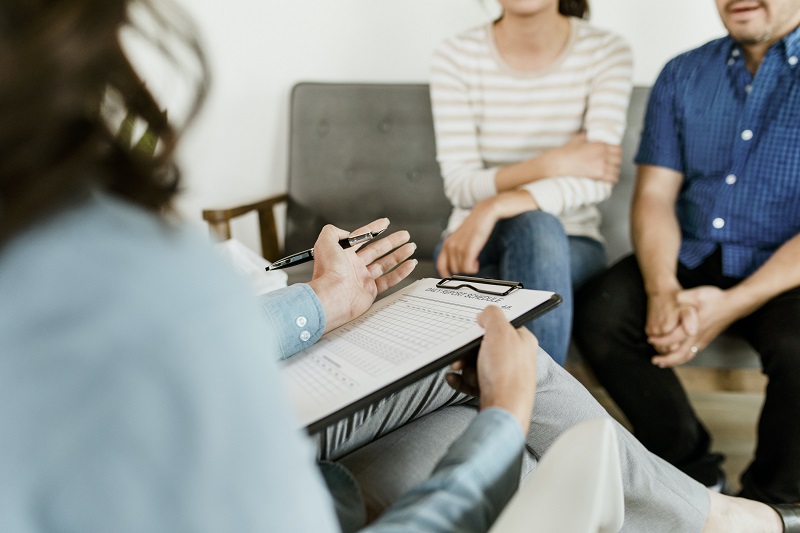Are you and your partner struggling with alcohol-related concerns? Couples’ alcohol counselling may be the solution you need. In this blog, we will explore the benefits of couples alcohol counselling, including improved communication, increased understanding, and enhanced coping strategies. We will also discuss the approaches used in couples alcohol counselling and how it is delivered. If you and your partner are facing challenges related to alcohol use, read on to learn how couples alcohol counselling can help and why seeking professional help may be a crucial step towards recovery and a healthier relationship.
Contents
What Is Couples Alcohol Counselling?
 Couples alcohol counselling is a form of therapy that focuses on addressing alcohol-related issues within a romantic relationship. It involves both partners attending counseling sessions together with a trained therapist to explore and work through challenges related to alcohol use, such as addiction, codependency, communication breakdowns, and relationship dynamics. Couples alcohol counseling aims to improve communication, promote healthier coping strategies, and develop strategies for managing alcohol-related concerns in the relationship.
Couples alcohol counselling is a form of therapy that focuses on addressing alcohol-related issues within a romantic relationship. It involves both partners attending counseling sessions together with a trained therapist to explore and work through challenges related to alcohol use, such as addiction, codependency, communication breakdowns, and relationship dynamics. Couples alcohol counseling aims to improve communication, promote healthier coping strategies, and develop strategies for managing alcohol-related concerns in the relationship.
Issues Addressed By Couples Alcohol Counselling
Couples alcohol counselling can address a variety of issues related to alcohol use within a romantic relationship. These may include:
- Alcohol addiction: Couples alcohol counseling can help partners understand and cope with addiction, including identifying triggers, developing relapse prevention strategies, and exploring treatment options.
- Codependency: It can address codependent behaviors, where one partner’s alcohol use may enable or reinforce the other partner’s addictive behaviors. It can help partners establish healthier boundaries and develop more independent coping skills.
- Communication breakdowns: Alcohol use may lead to breakdowns in communication within a relationship. Couples alcohol counseling can help improve communication skills, enhance emotional intimacy, and resolve conflicts related to alcohol use.
- Relationship dynamics: Alcohol use can impact relationship dynamics, such as trust, intimacy, and emotional connection. Couples alcohol counseling can address these issues and help partners develop healthier ways of relating to each other.
How Is Couples Alcohol Counselling Delivered?
Couples alcohol counselling can be delivered in various ways, depending on the couple’s needs, preferences, and the availability of resources. Some common methods include:
In-person sessions
In-person couples alcohol counseling typically involves couples attending face-to-face sessions with a trained therapist in a private office or clinic. This allows for direct, personal interaction and communication with the therapist. Couples can engage in open and honest discussions, receive immediate feedback, and work on developing coping strategies, communication skills, and other therapeutic interventions tailored to their unique needs.
Online sessions
 Couples alcohol counseling can also be delivered through virtual sessions via video conferencing platforms. Online counselling can be a convenient option for couples who may have limited access to in-person counseling services or prefer the flexibility of remote sessions from the comfort of their own location. Couples can still engage in therapeutic discussions, receive guidance, and work on their relationship dynamics and alcohol-related concerns through video calls.
Couples alcohol counseling can also be delivered through virtual sessions via video conferencing platforms. Online counselling can be a convenient option for couples who may have limited access to in-person counseling services or prefer the flexibility of remote sessions from the comfort of their own location. Couples can still engage in therapeutic discussions, receive guidance, and work on their relationship dynamics and alcohol-related concerns through video calls.
Group therapy
Couples may also choose to participate in group therapy sessions with other couples facing similar alcohol-related issues. Group therapy provides a supportive environment where couples can share their experiences, learn from each other, and gain perspectives from different viewpoints. It can also provide an opportunity to practice communication and relationship skills in a group setting and receive feedback from both the therapist and other couples.
Workshops or seminars
Couples may also attend workshops or seminars that focus on specific topics related to alcohol use and relationships. These may be offered in a group setting and cover various aspects of couples’ alcohol counselling, such as communication skills, coping strategies, and relapse prevention. Workshops and seminars may be conducted by trained therapists or other professionals and provide couples with education, skills, and tools to manage their alcohol-related concerns.
Self-help resources
Couples can also access self-help resources, such as books, online resources, or mobile applications, that provide information, exercises, and tools to support their alcohol-related concerns within their relationship. Self-help resources can be a complementary option for couples who may prefer self-paced learning or may not have access to regular counselling sessions. These resources can guide on coping strategies, communication skills, and other therapeutic techniques that couples can practice independently.
Approaches Used In Couples Alcohol Counselling
 There are various approaches used in couples’ alcohol counselling, depending on the specific needs and circumstances of the couple. Some common approaches include:
There are various approaches used in couples’ alcohol counselling, depending on the specific needs and circumstances of the couple. Some common approaches include:
- Behavioral Therapy: This approach focuses on identifying and changing unhealthy behaviors related to alcohol use. Couples may learn coping strategies, problem-solving skills, and communication techniques to manage triggers and prevent relapse.
- Cognitive-Behavioral Therapy (CBT): This approach helps couples identify and change negative thought patterns and behaviors related to alcohol use. It can involve cognitive restructuring, identifying and challenging unhealthy beliefs, and developing healthier coping strategies.
- Solution-Focused Brief Therapy: This approach focuses on identifying and building on the couple’s strengths and resources. It encourages couples to set goals, find solutions, and develop strategies to achieve positive change related to alcohol use.
- Emotionally Focused Therapy (EFT): This approach focuses on understanding and regulating emotions within the couple’s relationship. It explores how emotions may contribute to alcohol use and helps couples develop healthier emotional connections and intimacy.
- Relapse Prevention Therapy: This approach specifically targets preventing relapse in couples dealing with alcohol use. It may involve identifying triggers, developing relapse prevention plans, and building support systems to maintain sobriety.
The specific approach used in couples’ alcohol counselling may vary depending on the therapist’s expertise, the couple’s needs, and their preferences. The goal is to provide support, promote healthy coping strategies, improve communication, and enhance the overall well-being of the couple about their alcohol use.
Benefits Of Couples Alcohol Counselling
 Couples alcohol counselling can offer a range of benefits for couples who are struggling with alcohol-related concerns. Some potential benefits include:
Couples alcohol counselling can offer a range of benefits for couples who are struggling with alcohol-related concerns. Some potential benefits include:
- Improved communication: Alcohol addiction and related issues can often strain communication within a couple’s relationship. Couples alcohol counselling can provide a safe and supportive environment for couples to learn and practice healthy communication skills. Improved communication can help couples express their thoughts, feelings, and concerns more effectively, leading to better understanding, increased empathy, and enhanced conflict-resolution skills.
- Increased understanding: Counseling can help couples gain a better understanding of each other’s perspectives, experiences, and challenges related to alcohol use. This increased understanding can foster empathy and compassion, which can lead to improved emotional connection and intimacy within the relationship.
- Strengthened relationship dynamics: Couples alcohol counselling can address underlying relationship dynamics that may contribute to alcohol use, such as unresolved conflicts, unhealthy patterns of communication, and emotional disconnection. By addressing these issues, couples can work towards building a healthier and more supportive relationship, which can provide a solid foundation for recovery from alcohol addiction.
- Enhanced problem-solving skills: It can help couples develop effective problem-solving skills to address alcohol-related concerns. This may involve identifying triggers, setting boundaries, developing relapse prevention plans, and finding practical solutions to challenges related to alcohol use. Couples can also learn how to work together as a team to overcome obstacles and achieve their shared goals.
- Support for both partners: Couples alcohol counselling recognizes that both partners in a relationship may be affected by alcohol-related concerns. Couples alcohol counselling provides support for both partners. It helps them understand and manage their roles and responsibilities in the recovery process. This can lead to improved emotional well-being, increased mutual support, and strengthened resilience for both partners.
Conclusion
In conclusion, couples alcohol counselling can be a valuable resource for couples struggling with alcohol-related concerns. It offers a supportive environment for improving communication, understanding, and coping strategies, as well as addressing underlying relationship dynamics. Couples can benefit from enhanced problem-solving skills, strengthened relationship dynamics, and prevention of relapse. If you and your partner are facing challenges related to alcohol use, don’t hesitate to seek help from a qualified couples alcohol counselor to support your journey toward recovery and a healthier relationship.
For more information, please contact MantraCare. Addiction is a chronic and often relapsing disorder characterized by compulsive drug-seeking and use despite harmful consequences. If you have any queries regarding Online Addiction Counseling experienced therapists at MantraCare can help: Book a trial Online therapy session.


